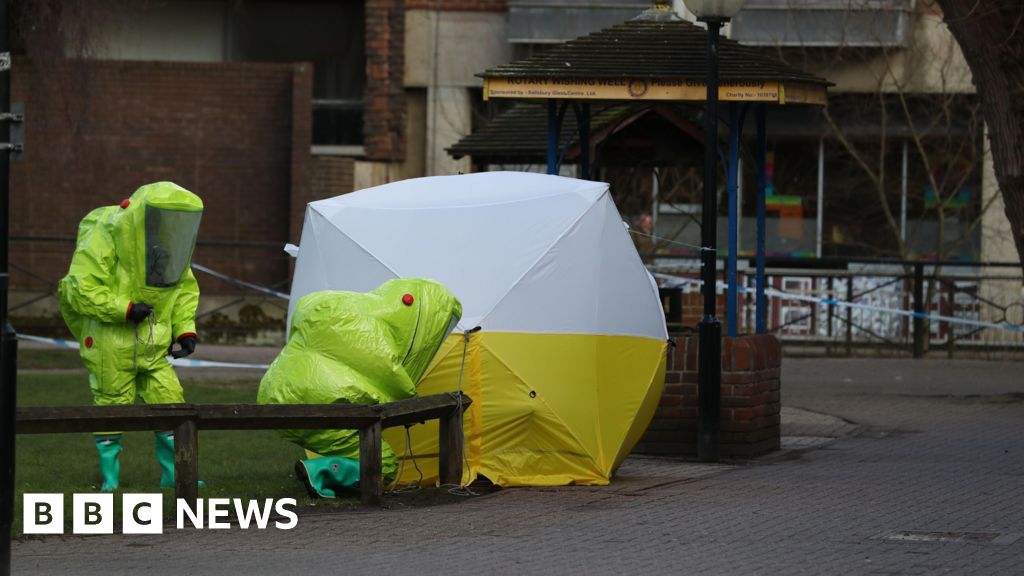The United Kingdom has escalated its response to Russian aggression by sanctioning a group of military intelligence officers connected to the horrific bombing of the Mariupol theatre in 2022. This attack
Did You Know
The Eiffel Tower grows during summer heat expansion.
?
AD
resulted in the tragic loss of hundreds of civilian lives, prompting the UK government to hold those responsible accountable. By targeting 18 officers from the Russian military intelligence agency, known as the GRU, the UK aims to demonstrate its commitment to international peace and security amid ongoing geopolitical tensions.
In addition to the focus on the Mariupol bombing, these sanctions extend to individuals associated with broader malicious activities, including the targeting of a former Russian spy’s family. The UK recently revealed the discovery of sophisticated cyber tools linked to the GRU, which have allegedly been used to wage a sustained campaign against European governments and institutions. This unity of military and cyber threats underscores the multi-faceted approach Russia employs to destabilize the region and assert its influence.
Several of the sanctioned officers are also wanted by the FBI for their involvement in espionage and efforts to undermine Western stability. This international cooperation highlights the urgent need for a coordinated response to counteract Russian aggression. As the conflict in Ukraine continues to evolve, the UK’s decisive actions reflect a commitment not only to its national security but also to the solidarity of nations standing against military and cyber hostilities. By holding individuals accountable, the UK reinforces its position in the global effort to combat the threats posed by Russian actions.
Q&A (Auto-generated by AI)
What are the GRU's main objectives?
The GRU, or Main Directorate of the General Staff of the Armed Forces of the Russian Federation, primarily focuses on military intelligence, including gathering information on foreign military capabilities and intentions. It conducts espionage, cyber operations, and special operations to support Russia's strategic interests, particularly in conflict zones like Ukraine. The GRU also plays a role in influencing political events abroad, as evidenced by its involvement in cyberattacks and disinformation campaigns aimed at destabilizing Western democracies.
How do sanctions affect international relations?
Sanctions are tools used by countries to influence the behavior of other nations without resorting to military action. They can strain diplomatic relations, as the targeted country may view sanctions as acts of aggression. For example, the UK's sanctions against Russian spies aim to hold Russia accountable for its actions in Europe. However, sanctions can also lead to unintended consequences, such as increased nationalism in the targeted country and potential retaliatory measures, complicating international diplomacy.
What is the history of UK-Russia tensions?
UK-Russia tensions date back centuries, influenced by imperial ambitions and geopolitical conflicts. The Cold War further intensified these tensions, with the UK aligning with NATO against the Soviet Union. In recent years, incidents like the poisoning of former Russian spy Sergei Skripal and Russia's annexation of Crimea have exacerbated relations. The UK's response has included sanctions and diplomatic measures aimed at countering Russian aggression, reflecting a broader Western concern over Russia's actions in Europe.
What role does cyber warfare play today?
Cyber warfare has become a critical component of modern conflict, enabling states to conduct espionage, disrupt infrastructure, and influence public opinion without traditional military engagement. Recent events, such as Russia's cyberattacks on various European institutions, demonstrate how cyber capabilities can destabilize nations. Countries invest heavily in cyber defense and offense, recognizing that vulnerabilities in digital infrastructure can have significant national security implications.
Who are key figures in Russian intelligence?
Key figures in Russian intelligence include the heads of major agencies like the GRU and the FSB (Federal Security Service). For instance, Igor Korobov was the head of the GRU until his death in 2018, known for overseeing military intelligence operations. Additionally, figures like Sergei Naryshkin, head of the SVR (Foreign Intelligence Service), play significant roles in shaping Russia's espionage strategies and international relations, influencing how Russia engages with the West.
















